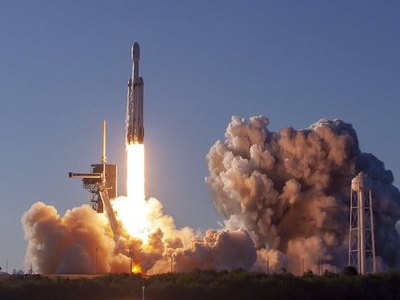The Russian space agency Roskosmos has successfully launched its first Arctic-surveillance satellite that will monitor the climate and environment of the Arctic.
Prime point
Roscosmos launched the Soyuz-2.1B carrier rocket, carrying the Arktika-M satellite with the help of this rocket. The rocket was launched on 28 February 2021 from the Bakonur Cosmodrome in Kazakhstan.
Satellite access
This satellite will collect information necessary to solve meteorological problems as well as hydrology problems. The satellite will also monitor the climate and environment of the Arctic region. It will also provide round the clock surveillance in the northern region of Russia. The Arctica-M satellite will broadcast images of the Earth’s North Polar region and surrounding areas every 15–30 minutes.
Arktika-M
This satellite is one of a series of planned Russian remote-sensing and emergency communications satellites. A constellation of two Arctica-M satellites has also been designed to monitor the Earth’s high-latitude regions. The satellite is based on the Lavochkin Electro-L meteorological satellite. The payload of this satellite includes MSU-GSM multi-spectral imager with transmitters for meteorological systems and rescue systems. The first launch for this satellite was scheduled for 2013, but it was delayed and launched in 2021.
Roscosmos State Corporation for Space Activities (Roscosmos)
It is a Russian government corporation involved in space flights, aerospace research and cosmonautics programs. After the dissolution of the Soviet Union in 1991, the rise of Roskosmos. It was initially established in 1992 as the Russian Space Agency. Roskosmos is headquartered in Moscow. Its main mission control center is located in the nearby city of Korolive,

![Buddha Purnima 2025 [TKB INDIA]](https://topknowledgebox.com/iphaphoo/2025/05/12052025-150x150.jpg)
![YouTube is about to turn 20, the company announced many big features [TKB Tech]](https://topknowledgebox.com/iphaphoo/2025/04/28042025-150x150.jpg)
![Basant Panchami 2025: Know the correct date and auspicious time [TKB INDIA]](https://topknowledgebox.com/iphaphoo/2025/01/31012025-150x150.jpg)

![Amazing feature of WhatsApp, you will be able to reply without listening to the voice message[TKB Tech]](https://topknowledgebox.com/iphaphoo/2024/11/24112024-150x150.jpg)





More Stories
Buddha Purnima 2025 [TKB INDIA]
YouTube is about to turn 20, the company announced many big features [TKB Tech]
Basant Panchami 2025: Know the correct date and auspicious time [TKB INDIA]